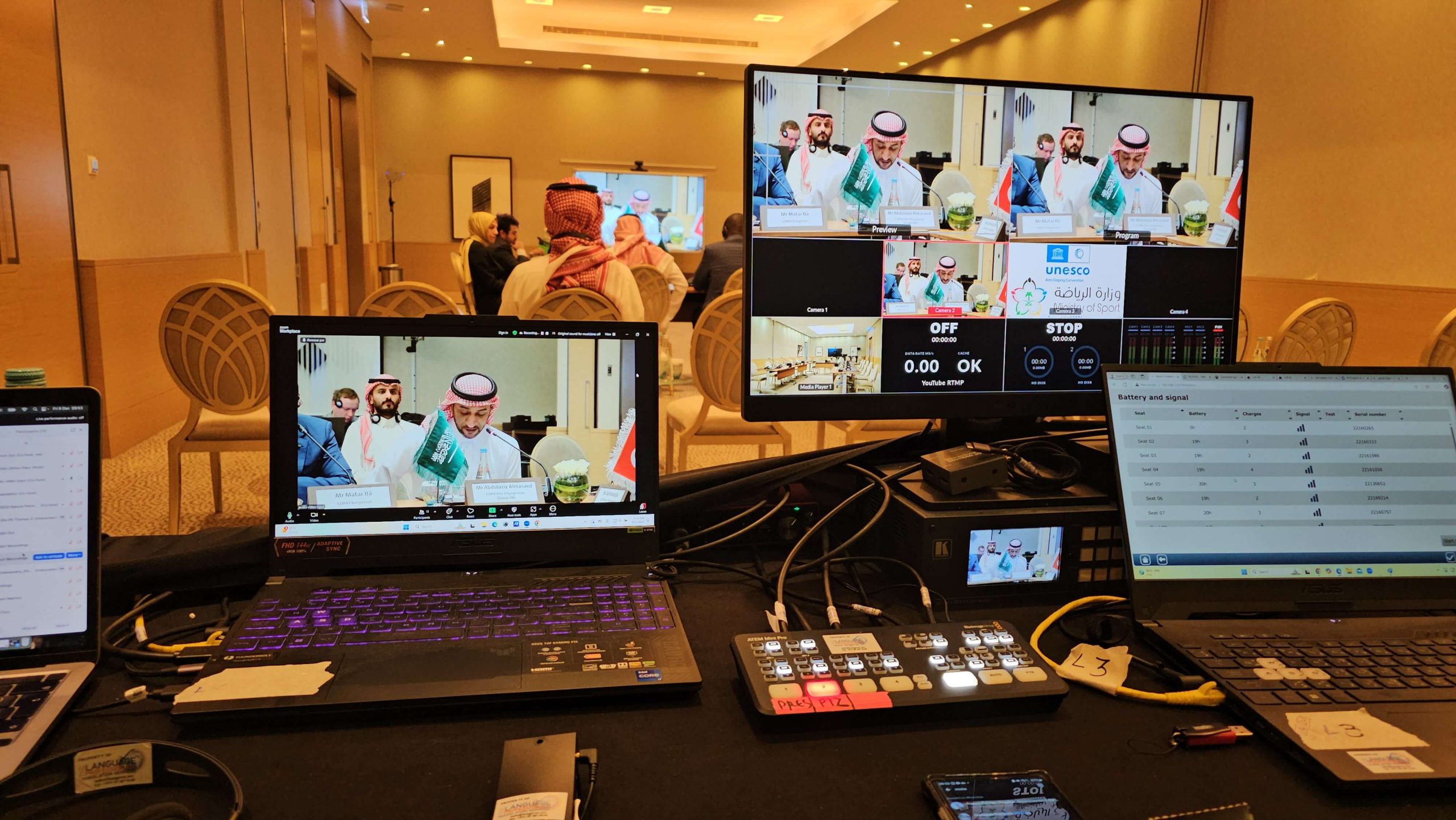Researched and written by Evangelos – ~4 min read

Interpreting, the art of translating spoken language in real-time, has always been a cornerstone of global communication. Today, technological advancements are revolutionizing this field, making interpreting services more efficient, accessible, and impactful. Let’s dive into how technology is transforming language services and what it means for businesses and individuals alike.
The Evolution of Interpreting Services
Interpreting services have come a long way from the days of in-person, face-to-face interactions. Traditional interpreting methods, while effective, often come with logistical challenges, such as the need for physical presence and specialized equipment. Technology is addressing these challenges and opening up new possibilities for interpreters and their clients.
Remote Simultaneous Interpreting (RSI)
One of the most significant innovations in interpreting is Remote Simultaneous Interpreting (RSI). This technology allows interpreters to work from anywhere in the world, providing real-time translation through internet-based platforms.
Here’s why RSI is a game-changer:
- Cost Efficiency: By eliminating the need for travel and on-site equipment, RSI significantly reduces costs for both clients and interpreters.
- Flexibility and Accessibility: RSI makes it easier to access interpreters with specific language skills, regardless of their location. This is particularly beneficial for rare languages or specialized fields.
- Scalability: Whether it’s a small business meeting or a large international conference, RSI can be scaled to fit the needs of any event.
AI and Machine Learning in Interpreting
Artificial Intelligence (AI) and machine learning are making waves in the interpreting world. While human interpreters still play a paramount role, AI-powered tools are enhancing their capabilities and providing new solutions:
- Real-Time Translation Apps: Apps like Google Translate and Microsoft Translator offer on-the-go translation services, making it easier for travelers and business professionals to communicate in foreign languages. While not perfect, these apps are continually improving and can handle basic interpreting tasks.
- Automated Subtitles and Transcriptions: AI-driven platforms can generate real-time subtitles and transcriptions for live events, webinars, and videos. This feature is particularly useful for accessibility, ensuring that content is available to a broader audience.
- Voice Recognition and Synthesis: Advanced voice recognition and synthesis technologies enable more natural and accurate translation. These tools can understand and replicate different accents and dialects, making translations more precise.
Hybrid Interpreting Solutions
Combining the best of both worlds, hybrid interpreting solutions integrate human expertise with technological advancements. Here’s how hybrid solutions are enhancing interpreting services:
- Enhanced Accuracy: Human interpreters, supported by AI tools, can provide more accurate and nuanced translations. AI can handle straightforward content, while human interpreters manage complex, context-sensitive material.
- Efficiency and Speed: Hybrid solutions streamline the interpreting process, allowing for quicker translations without sacrificing quality. This is especially beneficial in fast-paced environments like international business negotiations and legal proceedings.
- Cost Savings: By leveraging the latest technology, hybrid solutions can reduce the overall cost of interpreting services. Clients can choose a combination of AI and human interpreters based on their specific needs and budget.
The Future of Interpreting
As technology continues to evolve, the future of interpreting looks promising. Here are some trends to watch:
- Virtual Reality (VR) and Augmented Reality (AR): VR and AR have the potential to create immersive interpreting experiences–imagine attending a virtual conference where interpreters provide real-time translation within a fully interactive environment.
- Blockchain for Security: Blockchain technology can enhance the security and transparency of interpreting services. This is particularly important for sensitive industries like healthcare and finance, where data privacy is paramount.
- Improved AI Capabilities: As AI and machine learning algorithms become more sophisticated, their ability to understand and interpret human language will continue to improve. This will lead to more accurate and reliable AI-powered interpreting tools.
In a nutshell
Technology is revolutionizing the field of interpreting, making it more efficient, accessible, and cost-effective. From Remote Simultaneous Interpreting (RSI) and AI-powered tools to hybrid solutions that combine human expertise with technological advancements, the possibilities are endless. These innovations are not only breaking down language barriers, they are also paving the way for a more connected and inclusive world.
At Langpros, we’re committed to staying at the forefront of these advancements, ensuring that our clients receive the highest quality interpreting services. Whether you’re looking to streamline your business operations, enhance your global communication strategy, or simply stay ahead of the curve, we’re here to help you navigate the complex world of global interactions for businesses, governmental bodies, and other organizations operating internationally. Contact us today to learn more about how we can support your language needs in this rapidly evolving landscape.





